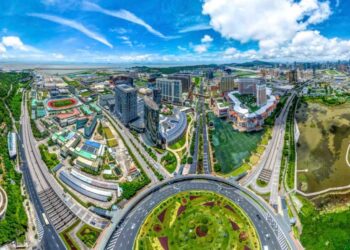The recent surge in Philippine online gaming licensees is likely to enter a period of contraction in the near future, with barely a third of those currently operational generating sufficient revenue to justify their existence.
Tonet Quiogue, Partner and Head of Manila-based law firm Arden Consult, stated during a Remote Gaming session at SBC Summit in Lisbon on Thursday that of the 64 official remote gaming operators currently licensed in the Philippines – not including those land-based integrated resorts also entitled to an online license – only around 25 are generating sufficient gross gaming revenues to ensure any form of long-term survival.
As a result, and given recent moves by some politicians to impose tighter regulations on the industry – or in some cases a total ban – Quiogue expects a natural consolidation of the industry to take place sooner rather later.
“I regularly see the GGR list and maybe just 25 of those licensees are actually making money or GGR to actually running a business,” she explained.
“I don’t know what the others are doing because their GGR obviously does not support their operations. Maybe some of them are holding off their licenses just to sell them or to transfer them.”
Despite revenues from the remote gaming industry having exploded over the past two years – including a 166% year-on-year increase to Php155 billion in 2024 and a further 83% to almost Php115 billion in 1H25 – Quiogue noted that no new licenses have been issued since early 2024 under a moratorium imposed by PAGCOR.
This, she added, suggests the regulator is keen to ensure a proper regulatory framework is in place to keep those operators in check.
“What we are seeing now is that our firm has been assisting in some consolidation investments because I think that, related to the changes, we expect there will be some sort of survival of the fittest and it will be based on those who will be able to put investments into compliance technology,” she said.
“There will be stricter and better requirements to ensure that these companies have responsible gaming and protection programs in place.
So, there will a cleanup from a compliance and operation level. That means those companies who are looking at the Philippines [as an opportunity] should also assess whether the companies they are talking to will survive this cleanup.”
Despite such consolidation and recent pressures placed upon the domestic online gaming industry, Quiogue said that a spate of bills introduced to parliament in recent months aiming to alter the online gambling landscape will do little to reduce the influence of PAGCOR on the industry and may ultimately provide it with greater power to shape the industry’s future.
“We have witnessed a 40x exponential increase [in remote gaming revenues] in just five years and I don’t know if we’ve seen that in any other jurisdiction,” she explained.
“What PAGCOR is saying is ‘Give us some time. We have tried to regulate it the way that we know best’. Remember that they are primarily a regulator of land-based casinos but every week there are new rules for an enhancement and PAGCOR are the ones that are allowed to issue these rules, so they are working very hard to stay ahead of the game.
“I do not believe that whatever law they are seeking to pass in these legislative hearings will strictly dictate what PAGCOR will do. I believe PAGCOR will still remain as the regulator, deciding what rules have to be in place, and they may even be given more enforcement powers against illegal operators or illegal activities in the Philippines.”




































